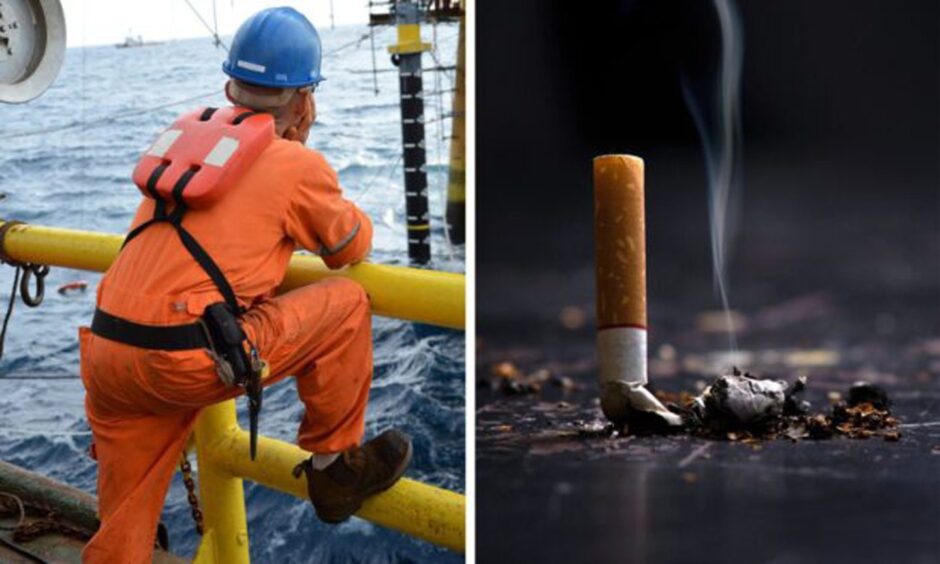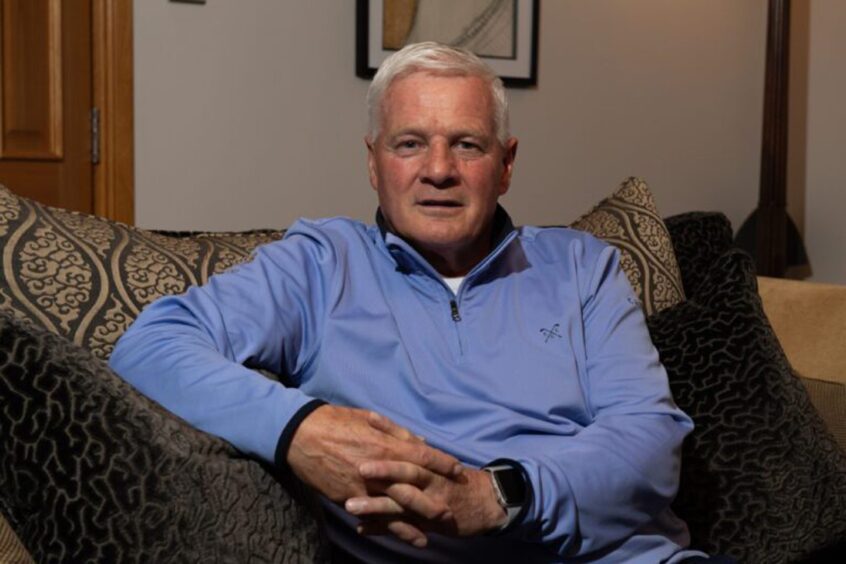 © Supplied by Shutterstock/DC Thom
© Supplied by Shutterstock/DC Thom They have all but disappeared from offices and airports, but smoking rooms are still going strong on North Sea oilrigs.
For now, at least.
This week, David Leiper, the chief medical officer for Harbour Energy outlined his long-term plan to stub out cigarettes completely on company platforms.
Saying he would start by banning the sale of cigarettes offshore, Dr Leiper explained he would eventually like to see zero smoking on board Harbour Energy rigs to improve the health of workers.
“If we could stop those who smoke offshore from smoking, we’d literally cut our cardiovascular risk in half,” he said.
What do oil and gas workers think about a smoking ban?
It is a bold suggestion from the Harbour Energy executive.
Currently, offshore workers can buy cigarettes onboard rigs, and smoke them in designated smoking rooms.
These nicotine-stained areas are not always the most pleasant spots on an oilrig, but they are often packed full of people enjoying a quick break — and a cigarette or two.
So it’s no surprise that a potential smoking ban was met with scepticism by those who work on the rigs, even the ones that don’t smoke.
“I don’t have a problem with people smoking offshore,” said James Brogan, a non-smoker who has worked in oil and gas in Aberdeen and on vessels around the world for the past 30 years and is currently offshore.
“I know from experience that the smoking areas are segregated and usually well ventilated, so the smoke doesn’t bother the non-smokers.
“My concerns are for the industry. If you start to stop people smoking offshore there will be people who won’t want to come offshore anymore.
“There is already a skill shortage in the offshore industry.”
Smoking ban a ‘big and emotive issue’
Meanwhile, Ian Aitchison, a retired health, safety and environment (HSE) officer for Shell, warned Dr Leiper’s plan could make recruitment more difficult for Harbour Energy.
“They could actually have a problem getting a workforce,” he said, adding that Dr Leiper should think carefully before doing something “rash, because that’s what the offshore industry will think of it”.
Mr Aitchison also said a smoking ban is a “very big and emotive issue”, largely because of the number of smokers offshore.
Though official stats show that 30% of offshore workers smoke, Mr Aitchison, who spent decades in HSE looking after the health of oil and gas workers, reckons the real figure is closer to half.
And he knows from his own experience just how attached to cigarettes that half can be.
In the late 1990s, he was HSE on the Tern oil platform in the North Sea when a power cut shut off most of the ventilation system for two days.
This meant smoking indoors was out of the question. But because Mr Aitchison didn’t want workers sneaking outside for a cigarette he went to the considerable trouble of rigging up a make-shift smoking room in one of the few areas that still had ventilation.
“Oh my god, you should have seen the relief on the smokers’ faces,” he said.
Cutting out unwanted smoke breaks
Mr Aitchison said during his career the issue of banning smoking offshore would come up now and again but never gained traction.
Health issues were not the only consideration. Workers constantly nipping off for smoke breaks annoyed managers — and the platform’s non-smokers.
“People think because they’re smokers, it’s their right to just go and have a fag whenever they feel like it,” Mr Aitchison said.
“I used to spend quite a bit of time going into the smoke hut to chase them out.”
Meanwhile, he’s certain offshore workers today, who are already under the spotlight for being more likely to be overweight, wouldn’t take to a smoking ban.
“They’d probably go on strike,” he said.
In fact, the only way a ban could work, he added, is for the whole industry to adopt it rather that one company.
“Go to Step Change [and Safety] and try and get it done as standard,” said Mr Aitchison, who previously headed up the industry workplace safety body. “That would be the sensible thing to do.”
‘That would be a big problem for me’
One person nervously eyeing a potential smoking ban is Jamie Sutherland.
The 38-year-old from Inverurie works as a forklift driver at Aberdeen harbour but is trying to land a job offshore.
He says he’s smoked since the age of 16 and would find it tough to endure a three-week oil rig rotation without sparking up.
“That would be a big problem for me,” he said.
“If I had an option of working for [a company] that doesn’t have [a smoking] ban then I’d do that for sure.”


